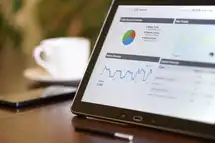What is business intelligence reporting?
Business intelligence reporting is the process of analyzing data to help businesses make better decisions. This can be done through various means, such as- -Using data mining to discover patterns and trends -Building decision models to help with decision-making -Creating visualizations to help understand data -Reporting on business performance
How Business Intelligence Reporting Can Streamline Your Business
What is Business Intelligence Reporting?
First, a case study. . .
Chipotle Mexican Grill is a restaurant chain that offers food prepared with classic cooking techniques and ingredients, such as naturally raised beef, organic tofu, and handcrafted guacamole. The company sources its ingredients from farms committed to sustainability that meet Chipotle's rigorous standards for food quality, animal welfare, and environmental stewardship. Since its founding in 1993, the chain has opened more than 2,400 restaurants in the United States, with additional locations in Canada, Germany, France and the United Kingdom.
Its commitment to sustainable products and increasing consumer awareness of sustainability would have meant that Chipotle was on the path to accelerated growth. But in the mid- to late 2010s, Chipotle was struggling.
Even though Chipotle has multiple customer data sources, including its loyalty program with more than 17 million members, point-of-sale data, a dedicated customer care center and multiple digital platformsnone of this gave the team a unified view of the operations. The chain lacked an effective way to use its data to drive business insights or improve marketing efforts.
What did they do?
Chipotle retired its traditional Business Intelligence solution and implemented a contemporary, self service Business Intelligence platform to gain a perspective on operational effectiveness. This centralized view of operations allowed them to track restaurant operations nationally, delivering reports faster than before and saving thousands of hours. It also made it easier for the staff to access data and make necessary changes to drive growth.
Business intelligence reporting uses a BI tool to prepare and analyze data to find and share actionable insights. This helps users improve decisions, performance, and business outcomes. With a predicted growth rate of 30.6 percent by 2025, the adoption of business intelligence across industries is becoming increasingly widespread and urgent. Sectors like banking, hospitality, healthcare and education are increasingly using BI to achieve greater efficiency in their operations.
Moreover, the Covid-19 pandemic has profoundly affected businesses, disrupting two years' worth of economic activity and causing billions in damage to companies across the world. In a turbulent economy, business intelligence reporting is more crucial than ever. And it's only noteworthy that BI tools and data analytics platforms have come a long way, with innovations like artificial intelligence, cloud computing, and mobility, enabling enterprises to make solid, data driven decisions.
How Do BI Reporting Tools Work?
Business intelligence applications gather and analyze information from various sources, including transactional databases, survey results, weather reports and retail sales records. These applications then summarize their findings and package the information into dashboards, business presentations and data visualizations that decision-makers can easily interpret.
Business intelligence tools are designed to increase the speed at which information can be transferred and analyzed to allow companies make decisions promptly. Business intelligence (BI) tools are used to integrate, analyze, and prepare data so that decisions can be made in accordance with organizational goals. In addition, it helps eliminate the need for manual data analysis by providing managers and employees with an easy-to-use, accessible interface.
It is pertinent to note that Artificial intelligence (AI) and business intelligence (BI) are related, but distinct entities- AI refers to computer intelligence, while BI refers to the more intelligent decision making which data analysis and visualization can yield.
Business intelligence software is primarily concerned with analyzing data to provide insight into past performance, information for future action and the revelation of hidden relationships within the data. On the other hand, artificial intelligence (AI) refers to computer intelligence. It is an inherent property of computers and machines that enables them to "think" for themselves by learning from experience, conducting logical reasoning and understanding language.
Hubworks, a cloud-based software solutions provider for the foodservice industry, offers a range of business intelligence and business analytics solutions. For example, Zip Reporting is a cloud based reporting tool designed to help restaurants monitor and benchmark their operations against industry standards. Zip Forecasting is a cloud-based forecasting tool designed to help restaurants make statistically sound projections based on historical data. And Zip POS Dashboard is aimed at helping restaurant owners make sense of their business data.
Making decisions without business intelligence reporting can be difficult and time-consuming.
Business intelligence reporting can help you make better decisions and improve your business.
How Can Business Intelligence Reports Help a Business

Business intelligence is a broad term encapsulating the processes, methods, and activities of collecting, storing, analyzing, and communicating data from business operations or activities in order to optimize performance. Business intelligence software collects and analyzes data from various sources, creating a central repository (a data warehouse) of information that can be used to make Business Development decisions. It includes reporting and analysis, and data mining.
BI Reports use data to accelerate growth. The main purpose of business intelligence reports has always been to use data more effectively, but modern business intelligence platforms allow for this process to be much more efficient, ultimately resulting in a new relationship with data.
Business intelligence platforms collect and process vast amounts of information ingested from various data sources, which can then be analyzed and packaged in useful formats, like dashboards, reports, and data visualizations.
BI Reports can be used to-
- Show present and historical data within a company's business context.
- Provide performance and competitor benchmarks, making it easier for managers to run their organizations more smoothly and efficiently.
- Spot market trends that can leverage sales or revenue.
- Provide the right data to help discover issues and problems in the business model.
- Keep up with compliances.
- Hire effectively and track performance.
5 Features Every Good BI Reporting Tool Should Have
Business intelligence platforms offer a variety of tools for analyzing and reporting on business data. When choosing an intelligence platform, it is important to consider which features can support your business needs. Business intelligence platforms can assist you with various business tasks, including those that address important questions about the status of your company, market trends, and strategies for increasing profit.
Here are five features that every good BI reporting tool should have-
- Easy access to data- An efficient business intelligence (BI) reporting tool gives business users access to the data they need, enabling them to connect to multiple data sources and view their information in numerous ways.
- The ability to create custom reports- An effective business intelligence reporting tool must offer customizable reports that can be attuned to the organization's needs. Users should be able to choose which fields they want included in their report and how they are displayed. Reports should be easy to generate and shareable with other members of the organization.
- Capabilities of interactive visualizations- Best BI tools allow users to interact with their data through visualizations, enabling them to drill down into data sets and filter results. Users should be able to see results quickly and easily in real-time.
- Collaborative tools- Effective BI reporting tools facilitate collaboration among teams. Users should be able to comment on reports or visualizations and save copies of reports for future reference or editing. This way, everyone will have the opportunity to work with the same data and stay up to speed on project progress.
- Scheduling and Scalability- An effective BI reporting tool should allow you to schedule business intelligence reports and ensure they are available when needed. It should also have the ability to scale up when new workloads are added and minimize infrastructure risks and costs.
How to Select the Right BI Software for Your Business
For a business to benefit from a BI platform, it is important to consider certain factors when making a purchase. The best Business intelligence (BI) software provides users with a single, comprehensive view of their entire business. BI dashboard and reports helps in Data Integration from multiple sources to create interactive visualizations that enable users to access the information they need quickly and easily. The faster you are able to access important information, the better you can manage your business and analytics.
The initial step should consider the type of data you need to analyze. Then, narrow down your choices and select a tool that works for your specific needs. For instance, restaurants work with multiple data points collected through their inventory management software, supply chain management software, point-of-sale systems, and CRM. The business intelligence tool should be able to integrate and interact with all these data points when needed.
Then, you need to consider how much data you have and how complex your analysis requirements are. If a business has a lot of data or very complex analysis needs, it may need a more robust tool than someone with less data or simpler needs.
Finally, take into cognizance the price of the software and ensure that it fits within your budget.
Your restaurant POS system is generating tons of important data, but you don't know what to do with it!
You need a business intelligence reporting tool to help you analyze and monetize your data.
5 Top Business Intelligence Reporting Tools for Restaurants
There are several different business intelligence reporting tools for restaurants, including these five that are at the top-
1. Zip Reporting-
Zip Reportingfrom the restaurant app store, Hubworksis an online reporting tool that provides comprehensive business data to help manage your business. It's easy to use and inexpensive, leaving you to focus on running your business.
With Zip Reporting, you'll know whether your company is meeting its goals and targets in real time. You'll have a historical record of all reports, so you can compare performance from one month to another, or even from one year to the next. Zip Reporting also allows you to manage different metrics for different locations, so it's perfect for companies with multiple locations or sites, but only one central office.
2. Tableau-
Tableau helps restaurants gain insights into their sales, customers, and key metrics. It connects and visualizes data in minutes by analyzing information from spreadsheets, databases, Hadoop clusters, or cloud services. Anyone can create an analysis with a few simple clicks and share it live on the web or on mobile devices.
3. Zoho Analytics-
Zoho Analytics is a business intelligence service that allows business users to create and share powerful reports in minutes without the IT department's help. It provides access to any data from anywhere, be it spreadsheets or other tabular data. It also accepts push data from cloud, or in-house business applications and databases for reporting and analysis. Once uploaded, embedded analytics can put complex dataoften presented in the form of reports, dashboards, and spreadsheetsdirectly into websites, applications, and other services. In addition, users can create visual analyses with an easy-to-use drag-and-drop interface.
4. Yellowfin BI-
Yellowfin is an analytics solution tailored to the hospitality industry. It includes features that facilitate predictive analytics workflowconnecting and preparing data, building dashboards and producing management reports. Its alerts and signals can detect changes in data as they happen, making sure businesses never miss a critical shift. In addition, Yellowfin's self service BI options enable anyone, from an experienced data specialist to a business user with no tech experience, to discover insights, allowing them to make decisions based on these insights.
5. Microsoft Power BI-
Power BI is a comprehensive business intelligence solution from Microsoft that combines ready-made templates and customizability to help restaurants analyze their data. Power BI allows restaurants to track every transactional action taken by the customer and identify trends to create relevant strategies to drive more business. In addition, Power BI has an interface based on Microsoft Office 365 that makes it easy to use the software.
Final Word
Business Intelligence reporting is the natural next step for a company seeking greater insights into its operations. Chipotle's case study proves that all insights into business information can be made visual with BI. A clear overview of the data is vital to making real-time adjustments to operational processes and critical to improving business performance and BI reporting can help achieve this.
You're convinced that you need a business intelligence reporting tool, but you don't know how to select one.
This article tells you what to look for in a BI reporting tool and rounds up the best tools in the industry.




